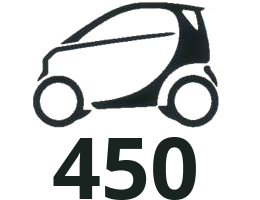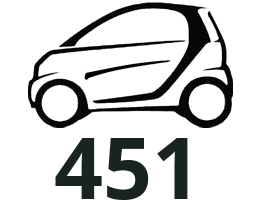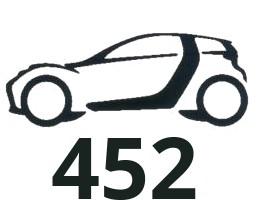Mod Description
The clutch actuator pushes the arm that moves the clutch in and out.Mod Details
PremiumNo Difficulty



 Mod ID331
CreditEvilution
For
Mod ID331
CreditEvilution
For

 Linkhttps://www.evilution.co.uk/mod/clutch-adjustments.htm Copy to Clipboard
Linkhttps://www.evilution.co.uk/mod/clutch-adjustments.htm Copy to ClipboardPoorly Adjusted Clutch Symptoms
Clutch adjustment problems are easy to determine. As the clutch wears you will start noticing that the car jerks when you change gear or accelerate. Eventually it will feel like a kick or a bang as the clutch engages.
If the actuator is poorly positioned or adjusted, you can also get the engine sounding like it’s choking, bogging down or juddering. You may also notice that the car over revs during gear changes especially when cold. If you leave it, you will find that the juddering happens when pulling away on flat ground in 1st or reverse. Eventually you’ll get less acceleration and more slipping. The revs rise but no power is being transfered to the wheels as the torque eventually causes the clutch to slip over the friction plate.
On every service, smart adjust the bite and release point of the clutch to ensure it works within its tolerances. Problems begin when you stop paying smart’s extortionate prices and go to a 3rd party specialist. Some specialists don’t have the hardware needed to adjust the clutch so it is often overlooked.
The people with the full MB Star system are:
S2Smarts (Watford)
Fudgesmart (isleham)
Wellsmart (Shepton Mallet)
Smart-automotive.co.uk (Newquay)
Mastertech Assist (Manchester)
BIG Performance (Egham)
McSmart (Airdrie) The people with the Win-Star system are:
Chequered Flag (Strood)
Smart Arse (Romsey)
Road Track Race (Nottingham)
If you use them for a service, ask for your clutch to be adjusted. Most will do it free as part of the service but some will charge you.
Clutch Adjustment
Clutch adjustment can be done in 2 ways (preferably both).
Mechanical Adjustment
A separate page for this info can be found here. Click.
Look under the car, just off to the left near the intercooler scoop you will see the sight below. Using an loosen the 3 bolts indicated below.

With all 3 bolts loosened, slide the unit towards the centre of the car (to the right). The actuator will only move about 2mm or 3mm before you feel it hit an obstruction. Stop pushing the actuator and it will move a fraction back to the left by itself.
Now you have to push the actuator towards the clutch with 50 Newtons of force. This is the equivelent of hanging a 5kg weight sideways off of the actuator.
Smart have a frame that holds around the actuator and that attaches to a force meter (which looks like old school luggage scales). The gauge is pulled to 50N and then the bolts are tightened to 10Nm.
Hefin L created a net that can be printed at 100% scale, stuck to 3mm steel plate, cut out and bent to create the frame. Click here.

With that task completed, the actuator is in the perfect position to allow the car to fully open and close the actuator and allowing the clutch to move properly.
At this point, I would recommend cleaning and lubricating the clutch actuator.
With that done, it is a good idea to ‘teach’ the car the new clutch position. This is called the bite and release point. With the actuator pushed in, the face of the clutch is moved slightly inwards as well. Ideally, the car should know where the clutch face is.
Electronic Adjustment
This electronic adjustment needs to be done on specific equipment like an MB Star machine or the less popular (and less features) Win-Star. Booking in with smart or (more sensibly) the any of the companies mentioned above will get the clutch electrically adjusted in under 10 minutes. Both systems plug directly into the OBD port.

Watching the MB Star or Win-Star system in action isn’t very interesting but listening to everything moving in the engine is fascinating. Teaching the bite and release points moves the actuator through a few movement with the engine off. You can hear the clutch moving and working out where the clutch is and where the actuator should be.
The adjustment is over in a few seconds but makes the car so much better than what it was. Try not to leave an un-adjusted clutch too long as it can cause glazing which reduces friction which will cause it to slip further. Slipping causes heat and heat will kill your clutch stone dead.
If you do kill it dead, you have a few options. If you have a standard car then just have the normal clutch fitted, slightly modified for power you should get a Roadster clutch. All out power smart owners should consider the Brabus Roadster clutch. Each one can handle slightly more power than the last.
If you consider your smart to be ‘race spec’ then consider the Bonalume performance clutch. Many attributes have been tagged to this 3rd party clutch which I won’t go into here. With that you get a lighter fly wheel installed.
A lighter flywheel will allow the engine to rev quicker, will slightly increase the BHP transfered to the wheels but will slightly reduce torque.
Clutch Fails The Electronic Adjustment
This is fairly common. The clutch actuator has to be able to open and close within a set time. If the actuator takes too long to move from one extreme to another, the adjustment will fail.
Win-Star was the worst for failing during adjustment but MB Star allowed slightly longer but could still fail.
Apart from checking the wiring to the clutch actuator, the best option is to clean and lube the actuator. Have a look here for more info.
Had The Clutch Adjusted But Still Not Happy?
Have a look here.
What Does The Clutch Actuator Do?
It pushes against a piece of metal that pushes against the clutch which engages or disengages it to transfer power from the engine to the wheels. You can see the actuator in action in the following video.


